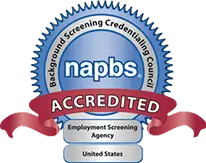Database Searches: The Good, The Bad and The Ugly – Part 1
Ensuring you are paying for an investigation, not a search
 Database searches are the starting point for any investigation but it is important to know that these searches, and the underlying data, have numerous benefits and downfalls. In order to help our clients understand these services better, we have completed a two-part series to explain the reasons why an actual investigator is used in our investigations, rather than relying on database searches to conduct “investigations”.
Database searches are the starting point for any investigation but it is important to know that these searches, and the underlying data, have numerous benefits and downfalls. In order to help our clients understand these services better, we have completed a two-part series to explain the reasons why an actual investigator is used in our investigations, rather than relying on database searches to conduct “investigations”.
Understanding Databases
Database searches like Lexis-Nexus, IRB, Tracers Info and Thompson Reuters provide a variety of data that has been collected through credit header information, public records and privately-sold data. Like we mentioned in the interlude, these services are a great starting point when you begin an investigation. They compile all of this data into a large report on an individual based on the user-provided search criteria.
The main data sources include addresses, Social Security Numbers, dates of birth, associated people, vehicles (when available), watercraft, professional licenses, court liens and judgments, court records, arrest records, department of corrections information, associated people and presumed relatives. Through our experience, we have found that depending on the data you are looking for, the information used to search for it, determines the outcome. When you go to the Secretary of State they do not ask for your SSN, but instead the use your date of birth, address and name. The same can be true to all of these data points; some use name only, some name and date of birth, and others use other combinations.
Understanding How Databases Help Investigators
Once a database search is run by an investigator, it will provide leads to point us in the right direction. In an asset search, the information of where a subject has lived will then lead the investigator to the local departments who will have records of who owns the property, when the latest mortgage was pulled and the last time the deed was recorded. All of these pieces of information could have a bearing on our client’s case, but are something that may or may not be present in a database search.
In other types of investigations databases can play a bigger or smaller role in our work. For instance, if a client is looking to serve a witness for litigation, we would only need their residential history and motor vehicle registration information to begin our work. In a background investigation, we may need far more data to give us indications of where to look for records outside of the person’s areas of residence.










